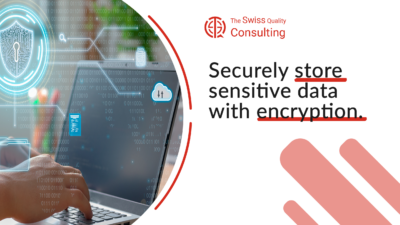Enhancing Data Privacy and Compliance
Data masking has emerged as a critical component of data security and privacy strategies, especially in the context of data analytics projects. In today’s digital landscape, where the volume of data generated and processed continues to escalate, protecting sensitive information is paramount. In Saudi Arabia and the UAE, where businesses operate in highly regulated environments and prioritize data privacy, implementing robust data masking techniques is imperative to mitigate risks associated with unauthorized access, data breaches, and compliance violations.
One of the primary objectives of data masking is to enhance data privacy and ensure compliance with regulatory requirements such as GDPR, HIPAA, and CCPA. By anonymizing personally identifiable information (PII) such as names, addresses, and social security numbers, organizations can prevent unauthorized access to sensitive data while still preserving its utility for testing, development, and analysis purposes. In Riyadh and Dubai, where stringent data protection laws are in place, leveraging advanced masking techniques helps businesses navigate complex compliance landscapes and mitigate the risk of penalties and reputational damage associated with data breaches.
Facilitating Secure Testing and Development
Data masking plays a pivotal role in facilitating secure testing and development environments by allowing organizations to use realistic yet anonymized datasets. This enables developers, testers, and data scientists to work with representative data sets without compromising sensitive information. In the realm of Artificial Intelligence and Machine Learning initiatives, where access to high-quality data is essential for model training and validation, data masking ensures that privacy is upheld while preserving the integrity and usefulness of the data. By incorporating masking techniques into their data workflows, businesses in Saudi Arabia and the UAE can accelerate innovation and drive digital transformation initiatives with confidence.
Ensuring Confidentiality and Integrity
With the proliferation of data across various touchpoints and platforms, ensuring the confidentiality and integrity of sensitive information has become increasingly complex. Data masking addresses this challenge by obfuscating sensitive data elements, thereby rendering them unintelligible to unauthorized users or processes. By applying masking techniques to fields such as credit card numbers, personal identification numbers (PINs), and health records, organizations can prevent unauthorized access and protect the privacy of individuals. This proactive approach to data security not only safeguards against potential threats but also fosters trust among stakeholders and customers, reinforcing the organization’s reputation for responsible data management.
Optimizing Data Utility and Accessibility
While the primary objective of data masking is to enhance data security, it is equally important to preserve the utility and accessibility of data for legitimate purposes. In the realm of analytics, where data serves as the lifeblood of decision-making processes, organizations must ensure that masked data remains useful for analysis, reporting, and modeling. Advanced masking techniques such as format-preserving encryption and tokenization enable organizations to retain the structural integrity of data while obscuring sensitive information. By striking the right balance between security and utility, businesses can derive maximum value from their data assets while minimizing risk.
Implementing Comprehensive Data Governance Frameworks
In addition to deploying data masking techniques, organizations in Saudi Arabia and the UAE are increasingly recognizing the importance of comprehensive data governance frameworks to support their data security and privacy initiatives. A robust data governance strategy encompasses policies, processes, and technologies designed to ensure the consistent and compliant management of data throughout its lifecycle. By establishing clear guidelines for data classification, access controls, and audit trails, businesses can strengthen their overall data protection posture while fostering a culture of accountability and transparency. Through continuous monitoring and refinement of governance practices, organizations can adapt to evolving regulatory requirements and emerging threats, thereby safeguarding their sensitive information assets and maintaining stakeholder trust.
#DataMasking #DataPrivacy #Compliance #Security #Analytics #DataProtection #SaudiArabia #UAE #DigitalTransformation #BusinessSuccess























